
Kuwait Zoo: A Wildlife Wonderland in the Heart of Kuwait City
The Kuwait Zoo offers a unique and engaging experience for all visitors, set in the heart of Kuwait City. This well-maintained wildlife haven is home to over 1,800 animals representing a variety of species from around the globe. The zoo is divided into several sections, each dedicated to different types of animals, including mammals, birds, and reptiles. This ensures that guests can explore and learn about the diverse range of wildlife in an organized manner. The zoo is not only about observing animals; it is also an educational experience. There are informative signs and interactive exhibits that provide fascinating facts about the animals and their natural habitats. For families, the zoo offers special programs and activities tailored for children, making it an ideal destination for a fun and educational day out. Moreover, the Kuwait Zoo emphasizes the importance of conservation. They participate in breeding programs and work to protect endangered species. Visitors can feel good knowing that their visit supports these noble efforts. The zoo also features beautifully landscaped gardens and shaded areas where visitors can relax and enjoy the natural surroundings.
Local tips in Kuwait Zoo
- Visit early in the morning or late in the afternoon to avoid the midday heat.
- Wear comfortable walking shoes as the zoo is quite large and involves a lot of walking.
- Bring your own water and snacks to stay hydrated and energized throughout your visit.
- Check the zoo's schedule for feeding times and special shows for a more interactive experience.
- Don't forget your camera to capture the memories and the beautiful animals.
Kuwait Zoo: A Wildlife Wonderland in the Heart of Kuwait City
The Kuwait Zoo offers a unique and engaging experience for all visitors, set in the heart of Kuwait City. This well-maintained wildlife haven is home to over 1,800 animals representing a variety of species from around the globe. The zoo is divided into several sections, each dedicated to different types of animals, including mammals, birds, and reptiles. This ensures that guests can explore and learn about the diverse range of wildlife in an organized manner. The zoo is not only about observing animals; it is also an educational experience. There are informative signs and interactive exhibits that provide fascinating facts about the animals and their natural habitats. For families, the zoo offers special programs and activities tailored for children, making it an ideal destination for a fun and educational day out. Moreover, the Kuwait Zoo emphasizes the importance of conservation. They participate in breeding programs and work to protect endangered species. Visitors can feel good knowing that their visit supports these noble efforts. The zoo also features beautifully landscaped gardens and shaded areas where visitors can relax and enjoy the natural surroundings.
When is the best time to go to Kuwait Zoo?
Iconic landmarks you can’t miss
Kuwait Towers
Explore Kuwait Towers: A stunning blend of history and modernity rising over the Arabian Gulf, offering breathtaking views and cultural experiences.
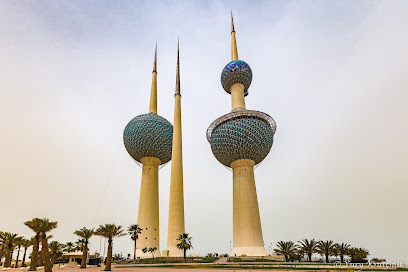
Al Shaheed Park
Explore Al Shaheed Park, an urban oasis in Kuwait City, where nature meets culture with museums, gardens, and art installations.
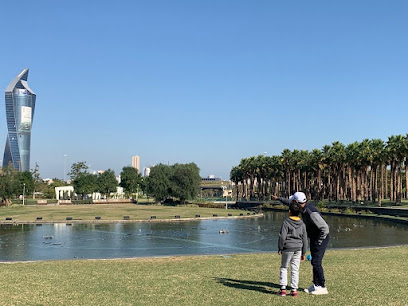
Al Bahhar Entertainment Historical Village
Experience the rich cultural heritage of Kuwait at Al Bahhar Entertainment Historical Village, a vibrant hub of history, entertainment, and tradition.
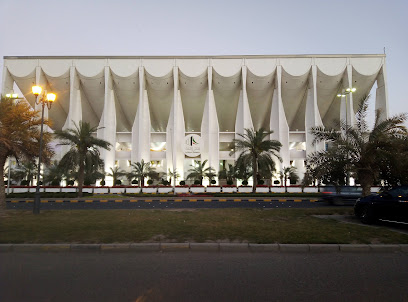
Little Jungle
Experience the thrill of wildlife at Little Jungle, Kuwait's premier zoo, featuring exotic animals, educational programs, and family-friendly fun.
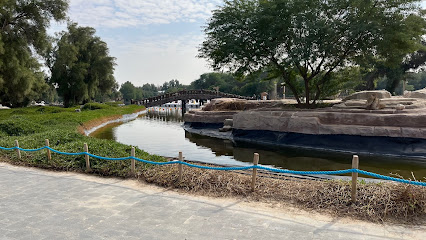
Kuwait National Museum
Explore the Kuwait National Museum, a cultural treasure trove showcasing Kuwait's rich history, art, and heritage in a stunning architectural setting.
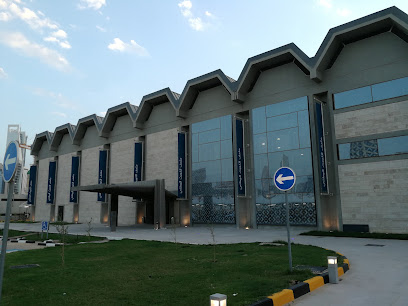
Omariya Park
Explore the lush landscapes and tranquil atmosphere of Omariya Park, a serene escape in Al Farwaniyah for families and nature lovers alike.
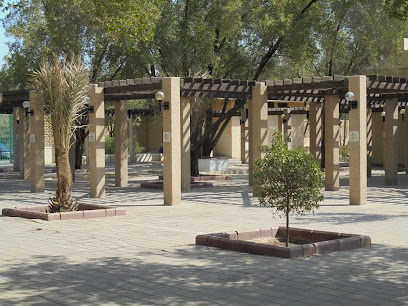
Unmissable attractions to see
حديقة الفروانية العامة
Explore Al Farwaniyah Public Park, a serene oasis in Kuwait perfect for relaxation, family fun, and enjoying nature's beauty.
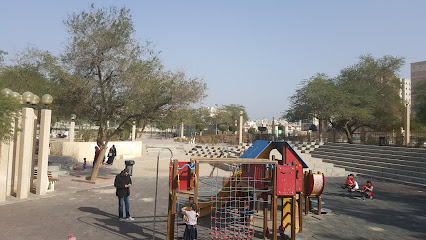
Khaitan Park
Discover the tranquility of Khaitan Park, a lush urban oasis perfect for relaxation, recreation, and family-friendly activities in Khaitan.
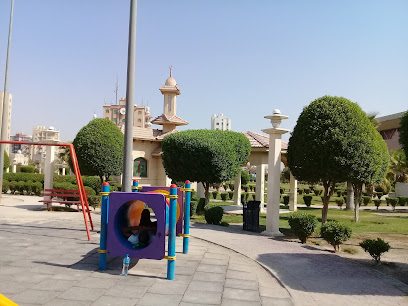
KidZania
Explore a world of fun and learning at KidZania, where children can experience real-life careers in a captivating theme park setting.
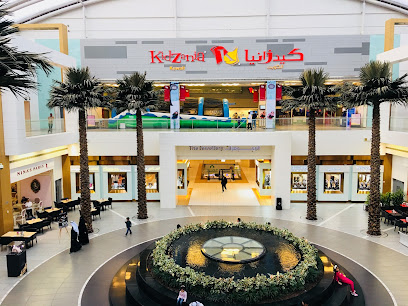
Little Jungle
Explore the enchanting Little Jungle Zoo in Kuwait, where wildlife meets family fun in a lush, interactive environment.
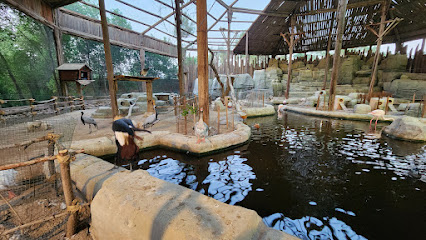
Khaldiya Park 3
Discover tranquility in Khaldiya Park, a lush urban oasis in Kuwait City offering family-friendly activities and serene walking paths.
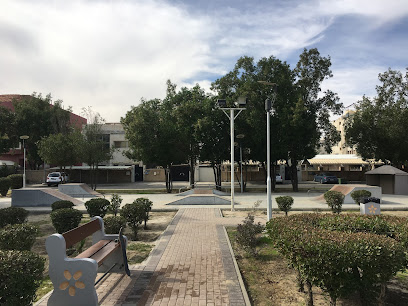
Garden piece age 5
Experience the serene beauty of Garden Piece Age 5 in Al Farwaniyah, a perfect escape into nature's tranquility.

Yarmook park
Discover the beauty of Yarmook Park, a serene garden oasis in Kuwait, perfect for relaxation, family fun, and nature walks.
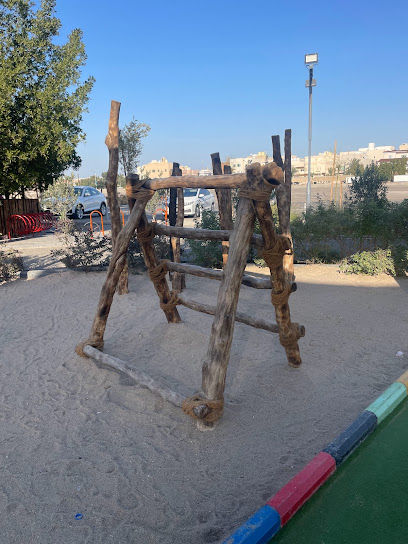
حديقة اليرموك
Explore the serene beauty of Al-Yarmouk Park in Kuwait City, a perfect escape for relaxation and a taste of local nature.
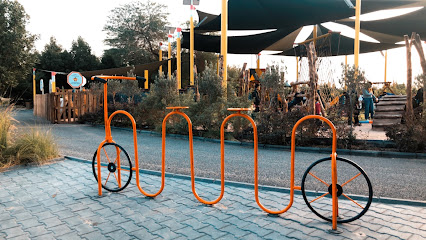
حديقة قرطبة
Explore the serene beauty of Qortuba Garden, a peaceful retreat in Kuwait with lush greenery and tranquil pathways for relaxation and reflection.
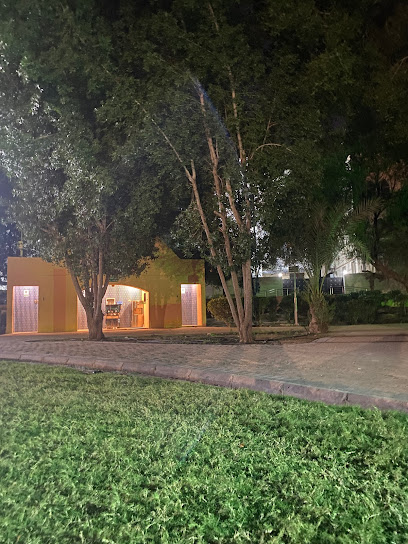
Park block 1
Discover the tranquil beauty of Park Block 1, a stunning garden oasis in the heart of Kuwait City, perfect for relaxation and exploration.
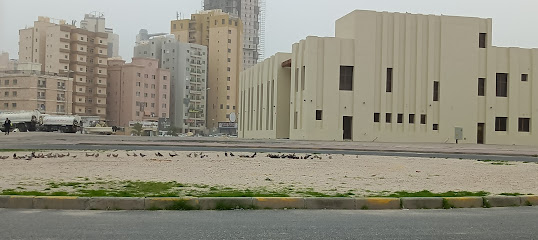
Garden For All People
Discover tranquility at the Garden For All People in Khaitan, where vibrant blooms and serene pathways offer a perfect escape into nature.
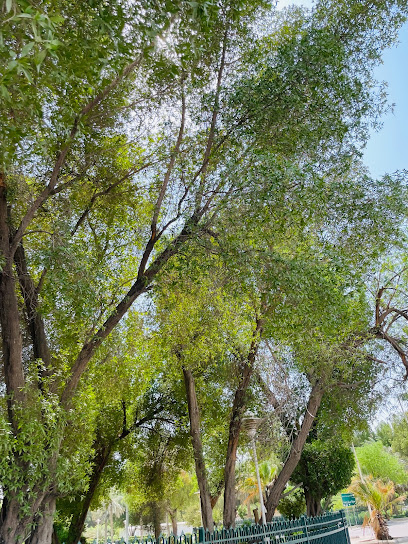
Alwaha Oasis
Alwaha Oasis: A serene arboretum in Kuwait, perfect for nature lovers seeking tranquility and beauty amidst lush greenery.
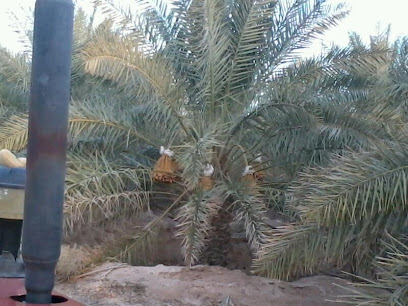
ديوان بدر راشد الوزان
Experience the serenity of Diywan Badr Rashid Alwazaan Garden, a lush oasis in Kuwait City perfect for relaxation and scenic strolls amidst nature.

Children's Park
Discover Children's Park in Shuwaikh, the ultimate family-friendly destination with playgrounds, green spaces, and a perfect ambiance for relaxation and fun.
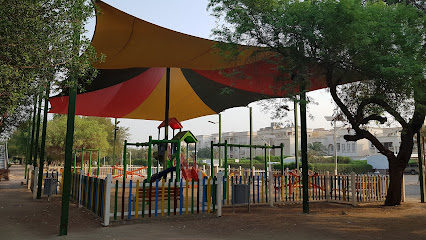
ممشة خيطان
Explore the serene beauty of Khaitan Park, a tranquil retreat with lush greenery and recreational activities for the perfect outdoor experience.
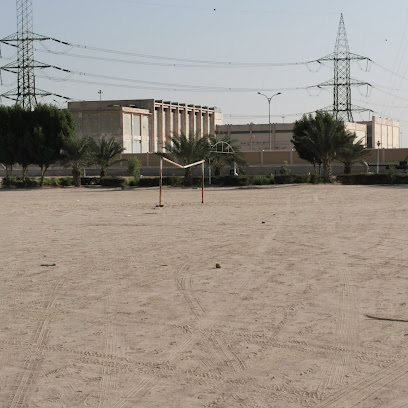
Essential places to dine
Mais Alghanim
Discover the rich flavors of Lebanon at Mais Alghanim in Kuwait City - an unforgettable dining experience awaits!
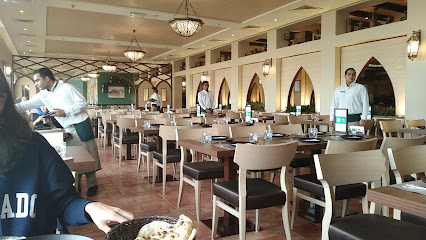
Lazy Cat
Discover Lazy Cat in Kuwait City: A charming breakfast spot offering diverse dishes and stunning views of the Arabian Gulf.
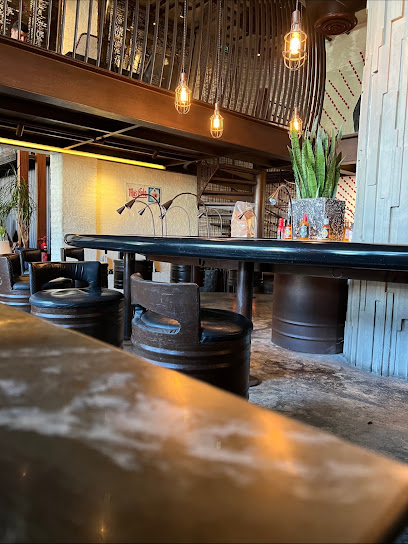
The Cheesecake Factory
Experience the rich flavors of American cuisine at The Cheesecake Factory in Al Rai – home to exquisite dishes and the best cheesecakes around.
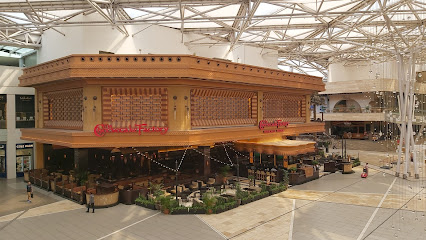
Texas Roadhouse
Experience the authentic taste of America at Texas Roadhouse - where every meal is a celebration of flavor and hospitality.
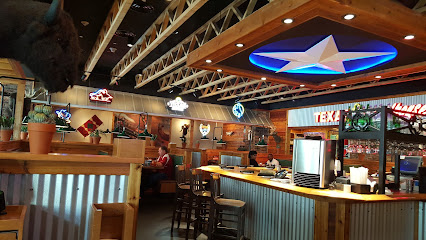
مطعم ساكت عجيب/Saket Ajeeb Restaurant
Discover authentic Middle Eastern flavors at Saket Ajeeb Restaurant in Kuwait – where taste meets tradition in an inviting atmosphere.
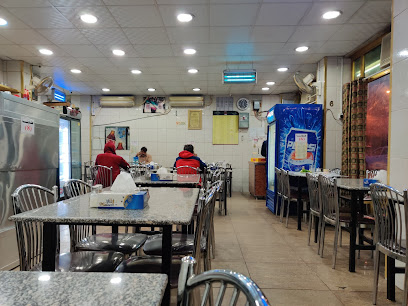
Table Otto - Al Shaheed Park
Discover a vibrant dining experience at Table Otto in Al Shaheed Park, where culinary delights meet stunning natural beauty in Kuwait City.
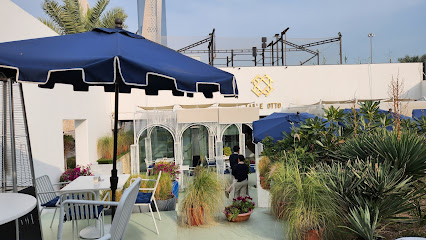
Ayam Zaman Lebanese Restaurant | مطعم أيام زمان اللبناني
Discover authentic Lebanese flavors at Ayam Zaman Restaurant in Salmiya - a must-visit culinary destination for all food lovers.
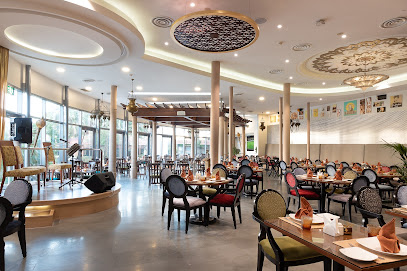
Khaneen Restaurant
Experience the essence of Middle Eastern cuisine at Khaneen Restaurant – where every dish tells a story.
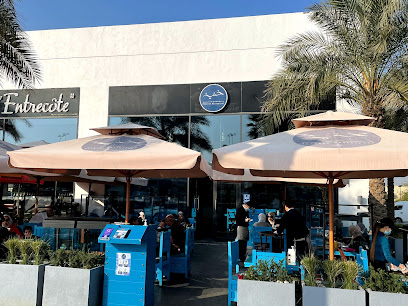
Lavan
Experience authentic Indian cuisine at Lavan in Kuwait City - a haven for food lovers seeking bold flavors and delightful dishes.
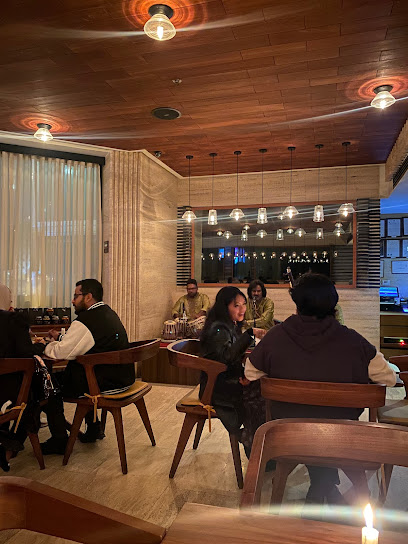
Zwara Sweets and Pastries
Discover Kuwait's finest sweets at Zwara Sweets and Pastries - where tradition meets innovation in every bite.
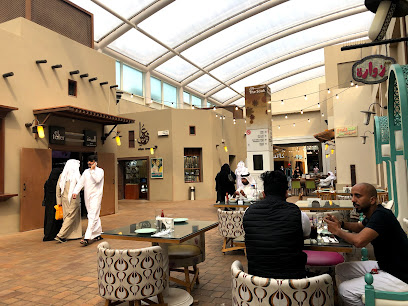
ave restaurant
Experience the perfect blend of Japanese flavors and American classics at Ave Restaurant in Kuwait City.
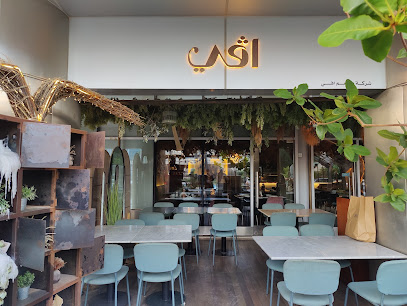
Al Bustan Restaurant
Experience culinary excellence at Al Bustan Restaurant in Kuwait's Radisson Blu Hotel - where local flavors meet international cuisine.
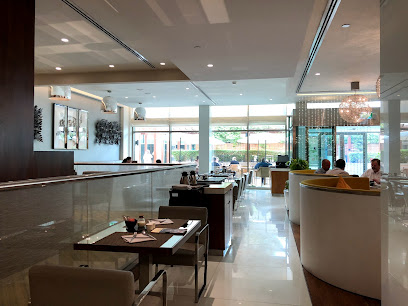
Benihana Avenues Mall
Experience authentic Japanese cuisine at Benihana Avenues Mall – where every meal is a feast for the senses.
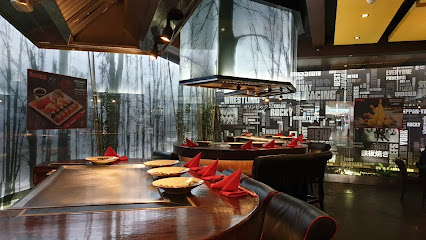
Melenzane - Al Harma Mall
Experience the best of Italy at Melenzane - Al Harma Mall with delicious dishes served in a welcoming atmosphere.
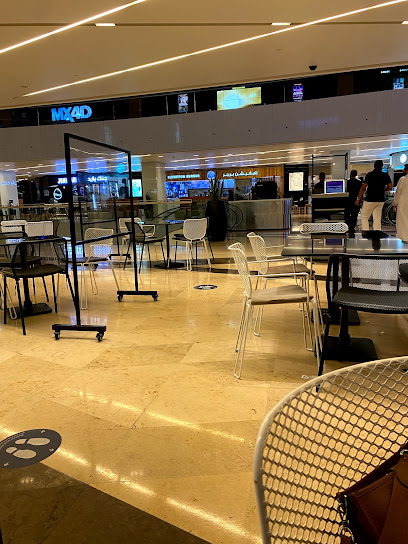
Business Lounge Restaurant
Discover exquisite flavors at the Business Lounge Restaurant in Kuwait City - where luxury meets culinary artistry.
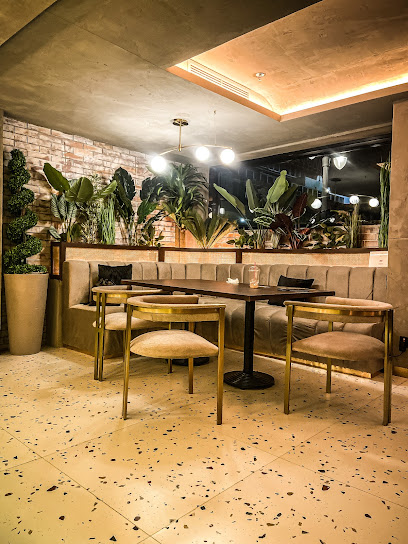
Markets, malls and hidden boutiques
The Avenues Mall
Explore The Avenues Mall in Kuwait, a vast shopping haven featuring luxury brands, diverse dining options, and delightful entertainment for everyone.
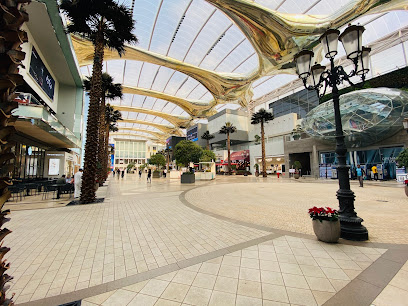
Al Mubarakiya
Explore Al Mubarakiya, Kuwait City's historic market, where traditional charm meets culinary delights in a vibrant atmosphere.
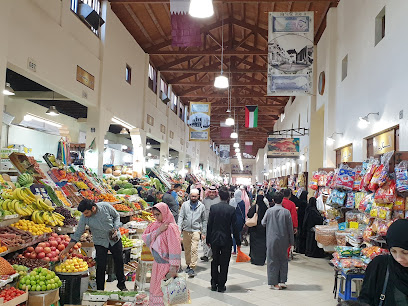
سوق السالمية
Explore Souk Al Salmiya: Kuwait's premier shopping mall with diverse shops, delightful dining, and vibrant entertainment.
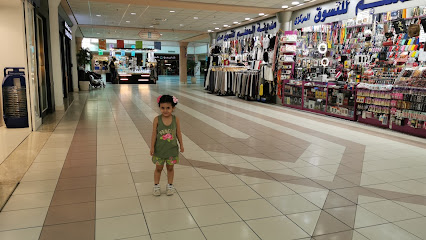
Souk Sharq
Shop, dine, and explore the cultural heart of Kuwait at the stunning Souk Sharq, where modernity meets tradition.
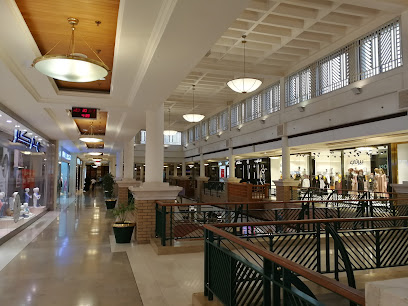
The Scientific Center
Explore the Science and Wonders of The Scientific Center in Salmiya – A Family-Friendly Destination with an Aquarium, IMAX, and More!
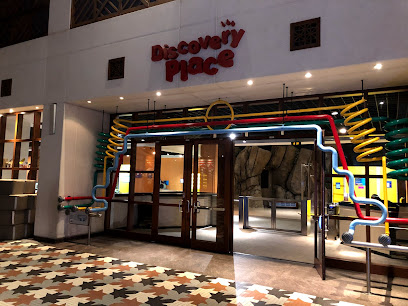
Al Bairaq Mall
Explore Al Bairaq Mall in Eqaila, Kuwait – a vibrant shopping hub filled with diverse retail, delicious dining, and family-friendly entertainment options.
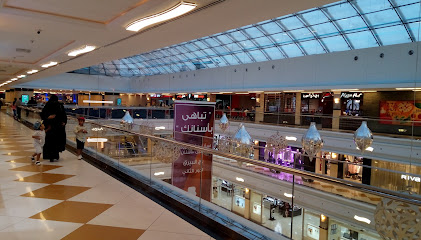
Kuwait Magic Mall
Discover the vibrant Kuwait Magic Mall, a shopping haven featuring women's fashion, dining, and family-friendly entertainment in the heart of Kuwait.
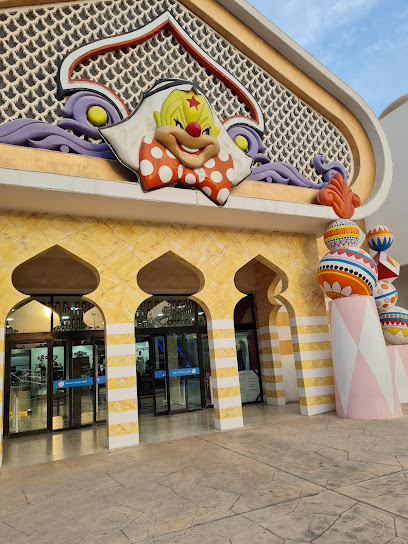
Petzone Megastore
Explore Petzone Megastore: Your ultimate destination for premium pet supplies, grooming, and a unique animal experience in Alrai.
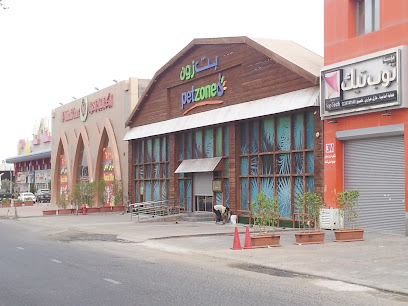
Souq Al Kuwait
Explore Souq Al Kuwait, a bustling shopping mall offering a unique blend of traditional crafts, modern fashion, and delightful local cuisine.
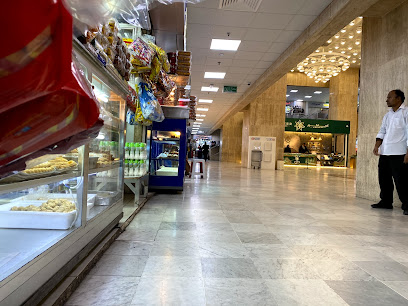
KidZania
Explore KidZania in Kuwait, a unique theme park where learning meets fun in a miniature city designed for children.
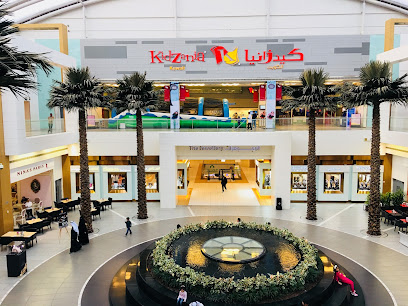
Al Muthana Complex
Discover a vibrant shopping experience at Al Muthana Complex, Kuwait City’s premier destination for retail, dining, and family fun.
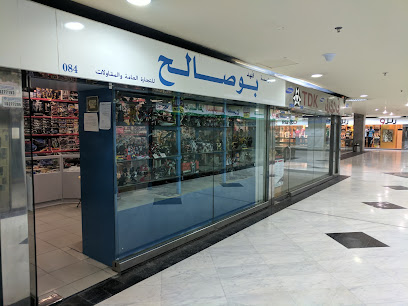
Xcite
Explore cutting-edge electronics and unbeatable deals at Xcite in Sama Khaitan Mall, the ultimate shopping destination for tech lovers in Kuwait City.
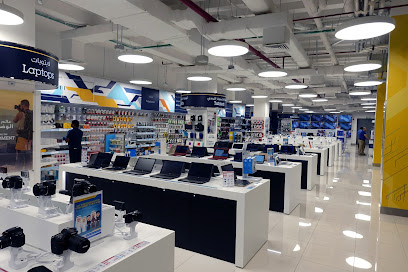
ZUE for Pet Supplies
Discover a pet paradise at ZUE for Pet Supplies in Alrai, Kuwait, where quality meets care for your beloved companions.
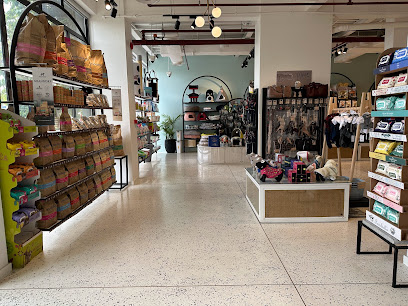
Bride and fish market محلات للطيور واسماك الزينه
Explore the Bride and Fish Market in Jaber Al Ahmad, a vibrant hub of exotic birds and ornamental fish, offering a unique cultural experience.
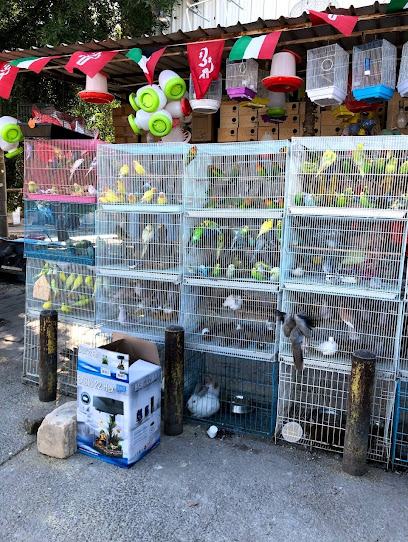
Ubuy
Explore Ubuy in Al Rai for a diverse selection of clothing, electronics, and more, making your shopping experience in Kuwait truly unforgettable.
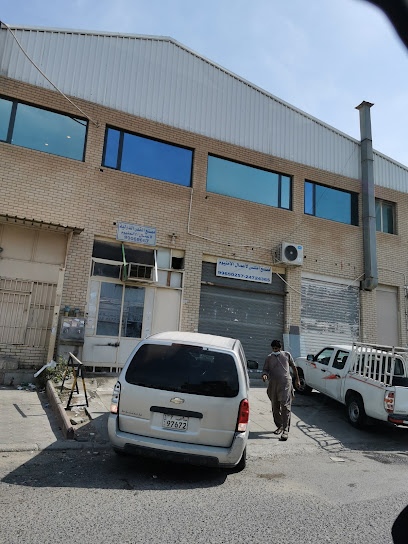
Essential bars & hidden hideouts
No.21
Experience the luxurious allure of No.21, a premier lounge in Kuwait City, offering exquisite drinks, cigars, and an inviting atmosphere.

Genki Bar And Pub
Discover the lively atmosphere of Genki Bar And Pub in Kuwait City, where great drinks and a vibrant nightlife experience await.
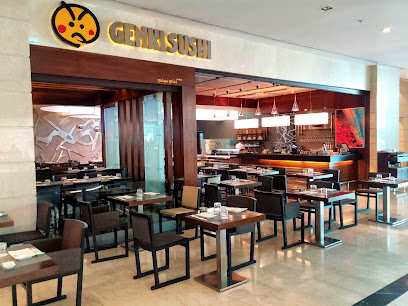
مقهى الجمرة
Experience the vibrant nightlife at مقهى الجمرة, a cozy bar in Khaitan offering a delightful selection of beverages and a warm ambiance.
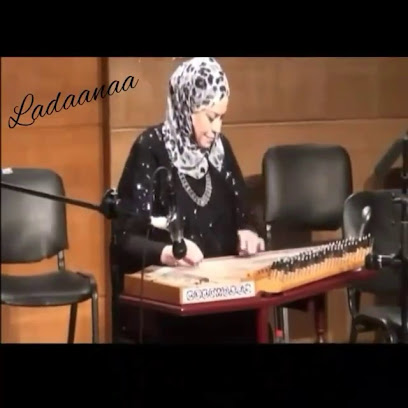
Al Mubarakiya Lounge
Discover Al Mubarakiya Lounge: A cozy oasis in Al-Dajeej, where tradition meets modernity in a vibrant atmosphere.
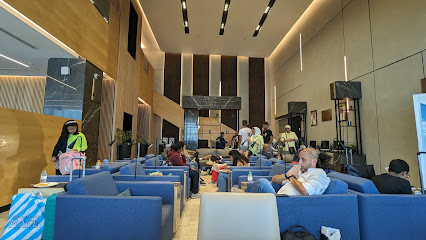
Jama
Discover the vibrant ambiance and exquisite Cuban cocktails at Jama, a premier bar in Shuwaikh Industrial, Kuwait.
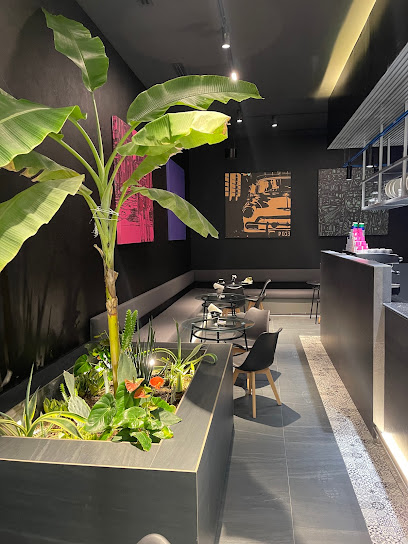
Macchiarte lounge
Experience exquisite dining and a vibrant atmosphere at Macchiarte Lounge, the perfect retreat in Kuwait City for food lovers and social butterflies.

ديوان مساعد الغريب
Discover Diwan Mas'ad Al-Ghareeb, a charming lounge in Kuwait offering traditional flavors and modern comfort for an unforgettable cultural experience.

Derwaza Lounge
Discover unparalleled relaxation and comfort at Derwaza Lounge in Kuwait International Airport, your perfect travel companion for a stress-free journey.
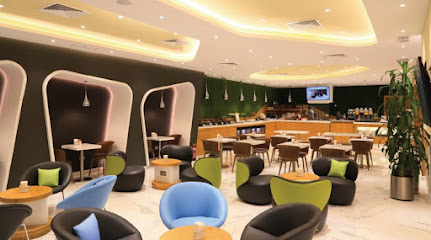
Smoothie House
Experience the vibrant flavors of Smoothie House in Shuwaikh Industrial, where delicious smoothies meet a relaxed atmosphere for the perfect refreshment.

Mariame Nèma kourouma
Experience the lively atmosphere and diverse drink selection at Mariame Nèma kourouma, a must-visit bar in Jeleeb Al-Shuyoukh, Kuwait.
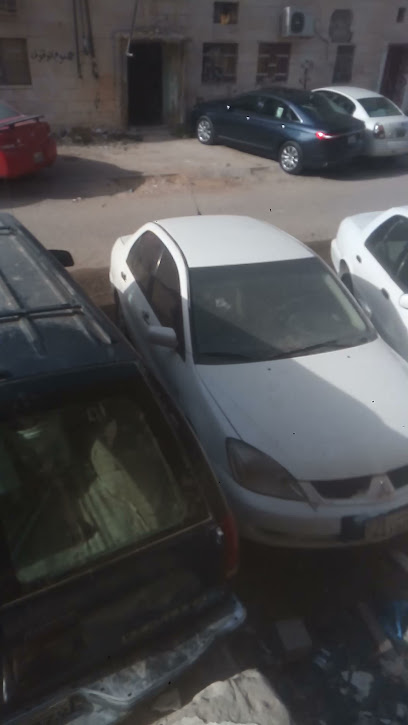
الجابريه
Discover Al-Jabriya: A dynamic bar in Jabriya offering an extensive drink menu and vibrant atmosphere perfect for socializing and relaxation.

ديوان الجاسر
Discover tranquility and elegance at Diwan Al Jasser Lounge, a premier destination in Yarmouk for relaxation and delightful refreshments.
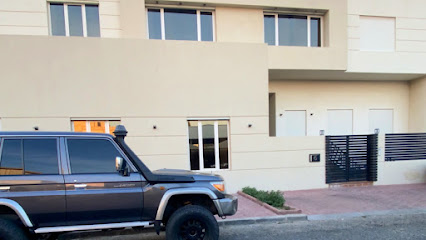
Ask
Experience the vibrant nightlife at Ask, a premier bar in Al-Dajeej, offering a perfect blend of refreshing drinks and lively ambiance.
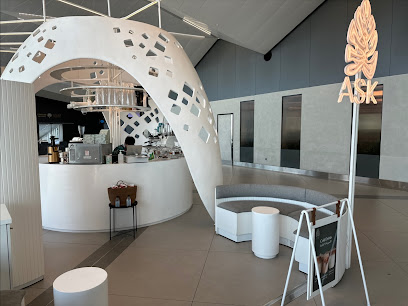
Oxio Poolside Lounge & Bar
Discover a luxurious escape at Oxio Poolside Lounge & Bar in Andalous, where relaxation meets refreshing cocktails by the poolside.

Local Phrases about Kuwait Zoo
-
- Helloمرحبا
[marhaban] - Goodbyeوداعا
[wadaeana] - Yesنعم
[naam] - Noلا
[laa] - Please/You're welcomeمن فضلك
[min fadlik] - Thank youشكرا
[shukran] - Excuse me/Sorryعذرا
[athaarana] - How are you?كيف حالك؟
[kayf halik?] - Fine. And you?بخير. وأنت؟
[bikheir. waant?] - Do you speak English?هل تتكلم الإنجليزية؟
[hal tatakallam al ingilizia?] - I don't understandأنا لا أفهم
[ana la afham]
- Helloمرحبا
-
- I'd like to see the menu, pleaseأود أن أرى القائمة، من فضلك
[awad an ara alqaima, min fadlik] - I don't eat meatأنا لا آكل اللحم
[ana la aakul al lahme] - Cheers!في صحتك
[fi sahtak] - I would like to pay, pleaseأريد أن أدفع، من فضلك
[urid an adfaa, min fadlik]
- I'd like to see the menu, pleaseأود أن أرى القائمة، من فضلك
-
- Help!النجدة!
[alnajda!] - Go away!انصرف!
[ansarif!] - Call the Police!اتصل بالشرطة!
[atassil bialshurta!] - Call a doctor!اتصل بالطبيب!
[atassil bialtabib!] - I'm lostلقد ضللت الطريق
[laqad dalalt altariq] - I'm illأنا مريض
[ana mareed]
- Help!النجدة!
-
- I'd like to buy...أريد أن أشتري...
[urid an ashtari...] - I'm just lookingأنا فقط أتطلع
[ana faqat atatala] - How much is it?بكم هذا؟
[bikam hatha?] - That's too expensiveهذا غالي جدا
[hatha ghali jiddan] - Can you lower the price?هل يمكنك خفض السعر؟
[hal yumkinuk kafdal alsar?]
- I'd like to buy...أريد أن أشتري...
-
- What time is it?كم الساعة؟
[kam alsaa'a?] - It's one o'clockالساعة الواحدة
[alsaa'a alwahida] - Half past (10)الساعة العاشرة والنصف
[alsaa'a alashira walnisf] - Morningالصباح
[assabah] - Afternoonالعصر
[alasr] - Eveningالمساء
[almasa] - Yesterdayأمس
[ams] - Todayاليوم
[alyawm] - Tomorrowغدا
[ghadan] - 1واحد
[wahid] - 2اثنان
[ithnan] - 3ثلاثة
[thalatha] - 4أربعة
[arba'a] - 5خمسة
[khamsa] - 6ستة
[sitta] - 7سبعة
[sab'a] - 8ثمانية
[thamania] - 9تسعة
[tasia] - 10عشرة
[ashara]
- What time is it?كم الساعة؟
-
- Where's a/the...?أين توجد...
[ayn tujad...] - What's the address?ما هو العنوان؟
[ma huwa al'anaan?] - Can you show me (on the map)?هل يمكنك أن تريني (على الخريطة)؟
[hal yumkinuk an tureeni (ala alkhareeta)?] - When's the next (bus)?متى يأتي الحافلة التالية؟
[mataa yaati alhaflat altalia?] - A ticket (to ....)تذكرة (إلى...)
[tazkara (ila...)]
- Where's a/the...?أين توجد...
History of Kuwait Zoo
-
Kuwait Zoo first opened its gates to the public in 1968. Located in Omariya, it was designed to be a sanctuary for a variety of animals, both local and exotic, and a place for educational enrichment for the people of Kuwait. The zoo initially housed a modest collection of animals and steadily grew in size and scope over the years.
-
Throughout the 1970s and 1980s, Kuwait Zoo underwent significant expansions. New enclosures were built to house a wider variety of species, including large mammals, birds, and reptiles. The zoo's infrastructure was improved, with the addition of visitor amenities such as cafes, rest areas, and educational exhibits. These developments made the zoo a popular destination for families and tourists alike.
-
The Gulf War in 1990-1991 had a profound impact on Kuwait Zoo. During the Iraqi invasion, the zoo was severely damaged, and many animals were either killed or escaped. In the years following the war, efforts were made to restore the zoo to its former state. International aid and donations from various organizations helped in rebuilding the enclosures and replenishing the animal population.
-
In the early 2000s, Kuwait Zoo embarked on a mission to modernize its facilities and enhance its role in wildlife conservation. This included upgrading animal habitats to be more natural and enriching, as well as implementing breeding programs for endangered species. The zoo also started collaborating with international conservation organizations to promote the protection of wildlife.
-
Kuwait Zoo has always placed a strong emphasis on education. Over the years, it has developed various educational programs aimed at raising awareness about wildlife and conservation among school children and the general public. These programs include guided tours, interactive exhibits, and workshops. The zoo also engages with the local community through events and activities, fostering a deeper connection between the people and their natural environment.
-
Despite its many successes, Kuwait Zoo faces ongoing challenges, including maintaining animal welfare standards and addressing the impacts of climate change. However, the zoo remains committed to its mission of conservation, education, and providing a safe haven for animals. Future plans include further expansion, the introduction of new species, and the continuous improvement of visitor experiences to ensure the zoo remains a vital and vibrant part of Kuwait's cultural landscape.
Kuwait Zoo Essentials
-
Kuwait Zoo is located in Omariya, a suburb of Kuwait City. The nearest international airport is Kuwait International Airport, approximately 15 kilometers away. From the airport, you can take a taxi or car service to reach the zoo. Alternatively, if you are staying in Kuwait City, you can take a short taxi ride or use public transportation options like buses to get to the zoo.
-
Taxis are a convenient and popular mode of transportation to reach Kuwait Zoo. You can also use ride-hailing services like Uber or Careem. Public buses operated by the Kuwait Public Transport Company (KPTC) are available and offer routes that stop near the zoo. If you prefer to drive, ample parking facilities are available at the zoo.
-
The official currency in Kuwait is the Kuwaiti Dinar (KWD). Credit and debit cards are widely accepted at the zoo, including at ticket counters, gift shops, and food outlets. However, it is advisable to carry some cash for smaller purchases or in case electronic payment options are unavailable.
-
Kuwait Zoo is generally a safe destination for tourists. However, it is always wise to take standard safety precautions. Keep your belongings secure and be mindful of your surroundings, especially in crowded areas. There are no specific high-crime areas targeting tourists in the vicinity of the zoo, but it is advisable to avoid isolated areas and be cautious at night.
-
In case of an emergency while at Kuwait Zoo, you can contact the local authorities by dialing 112, the emergency number in Kuwait. The zoo staff are trained to handle emergencies and can assist you in contacting medical services if needed. It is recommended to have travel insurance that covers medical emergencies.
-
Fashion: Do dress modestly, as Kuwait is a conservative country. Avoid wearing revealing clothing. Religion: Do respect local customs and traditions. Public Transport: Do be courteous and respectful when using public transport. Greetings: Do greet people with a smile and a polite greeting, such as 'As-salamu alaykum' (peace be upon you). Eating & Drinking: Do try the local food offerings at the zoo, but avoid eating and drinking in public during Ramadan as it is considered disrespectful.
-
To experience Kuwait Zoo like a local, visit during weekdays to avoid the weekend crowds. Take your time exploring the various sections of the zoo, including the bird aviary and reptile house. Engage with the zoo staff to learn more about the animals and their care. Don't miss the opportunity to enjoy a picnic in the designated areas within the zoo grounds.
Nearby Cities to Kuwait Zoo
-
Things To Do in Jahra
-
Things To Do in Kuwait City
-
Things To Do in Hawalli
-
Things To Do in Sabah Al-Salem
-
Things To Do in Salmiya
-
Things To Do in Ahmadi
-
Things To Do in Mangaf
-
Things To Do in Fahaheel
-
Things To Do in Basra
-
Things To Do in Amara
-
Things To Do in Al Jubail
-
Things To Do in Dammam
-
Things To Do in Al Khobar
-
Things To Do in Budaiya
-
Things To Do in Saar








